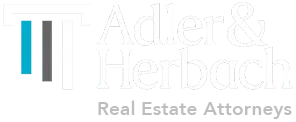When buying a home, the closing costs can add up quickly. These fees pay for title searches, inspections, appraisals, and more. With costs averaging 2-5% of the purchase price, coming up with the cash isn’t always easy. So can you take out a loan to cover these closing costs?
Can I Borrow Money for Closing Costs on a Home Purchase?
Yes, Borrowing for closing costs is allowed, but tell your lender so they can correctly calculate your debt-to-income ratio. New debt affects this ratio, so it could impact mortgage approval. Talk to your lender first to get personalized advice.

1. Disclose the Loan to Your Mortgage Lender
If you do take out a separate loan for the closing costs, be sure to disclose this to your mortgage lender. You’ll need to provide details on the loan amount, fees, and repayment terms.
The lender needs this information to accurately calculate your debt-to-income ratio. This ratio compares your total monthly debt payments to your gross monthly income. Most lenders want to see your DTI below 43%.
So if the new closing cost loan payment increases your ratio too much, it could impact your mortgage approval. Consulting with the lender beforehand allows you to weigh the options and implications.
2. The Loan Payment Impacts Your DTI
As mentioned above, any loan payments you take on will be included in your DTI calculations. So even if it’s just a small loan for closing costs, the monthly payment counts against your qualifying ratio.
Make sure to account for this added monthly payment when you first apply for pre-approval. This gives the lender an accurate picture of your current debts and income situation.
If the payment does push your ratio over the allowed amount, you may need to pay down other debts, such as credit cards, first. Or opt for a lower purchase price to qualify within the lender’s guidelines.
3. Don’t Borrow for the Down Payment
One very important note – you cannot borrow money for the down payment on a home purchase. Lenders require this cash to come from your own funds, or gift funds from a qualified family member.
The down payment requirement depends on the type of mortgage loan. FHA loans need at least 3.5% down. Conventional loans typically require 5-20% down.
Coming up with sufficient funds for both the down payment and closing costs is the main hurdle for many buyers. Make sure to factor both into your home purchase budget.
4. Talk to Your Lender First
Before taking out any loans to cover closing costs, consult your mortgage lender or loan officer. They can review your specific financial situation and suggest the best options.
Let them know if you’re thinking of borrowing funds and how much. They can advise you on the implications for your DTI and loan approval.
The lender may suggest alternatives, like asking the seller to cover some closing costs. Or they may alter the loan amount to roll the costs into your mortgage.
Having this discussion ahead of time ensures you make informed decisions. And helps avoid any surprises during the mortgage underwriting process.
Learn more about
The Bottom Line
Yes, you can take out a separate loan to pay for closing costs on a home purchase. Just be sure to disclose the details to your lender to avoid issues. And remember, borrowed funds cannot be used for the down payment. Planning ahead and consulting your lender makes for a smooth process.


